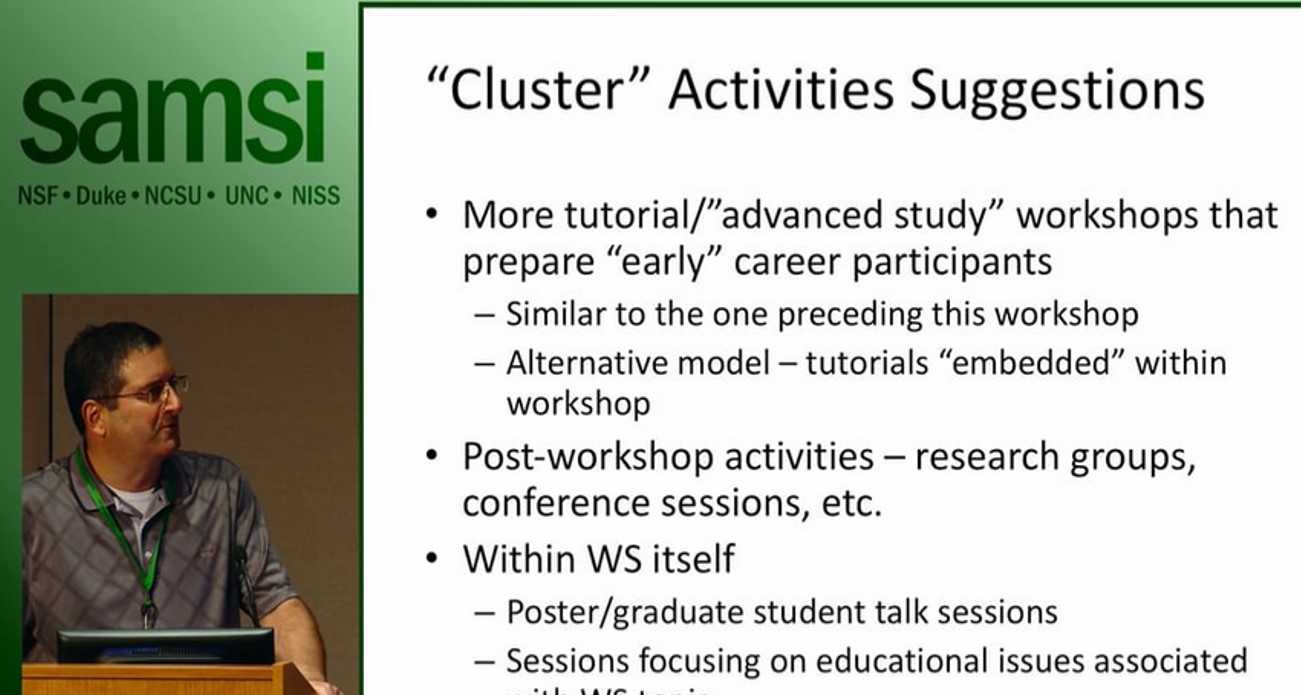Education: Connecting Forensics and Mathematical Sciences - Eugene Fiorini -- Forensics Opening Workshop
September 2, 2015
Keywords:
- Working groups
- Outreach education
- Forensic Sciences
- Mathematical Sciences
Abstract
The issues facing the forensic science community call for a new type of workforce, trained in the
mathematical sciences through multidisciplinary and multi-national communication and
collaboration. To function in this rapidly developing forensic world, students in mathematical
sciences classes will need to appreciate the most important concepts at the interface between
their discipline and others. They will need to develop an increasingly sophisticated
understanding of the ways that disciplines interact, the new knowledge that is created through
this interaction, and the new educational and career opportunities in an inherently
multidisciplinary field. Students from non-mathematical disciplines will benefit from observing
the importance of mathematical sciences tools for their discipline.
This session will begin the discussion on what materials exist and which materials could be
developed for undergraduate and graduate students interested in a forensics career. How do we
connect mathematical sciences with other forensic disciplines? Do we develop multidisciplinary
courses that relate to forensics? Do we inject multidisciplinary forensic topics into existing
curricula? Are case study courses a good medium? Do we put more emphasis on
multidisciplinary forensic projects as part of existing courses? Does it matter what the "other"
discipline is, or is some multidisciplinary experience sufficient? How do we prepare
mathematical sciences students to work in forensic disciplines that they might not encounter until
later in their careers? What is the role of team experiences? Could increasing emphasis on
forensic topics early in undergraduate education improve retention of STEM majors? Do forensic
topics provide opportunities for involvement of undergraduates in research, e.g. because of the
availability of forensic data sets? How do we prepare faculty for multidisciplinary education in
forensic topics?
The session will begin with a brief introduction of the current status of materials, then proceed
with a b
